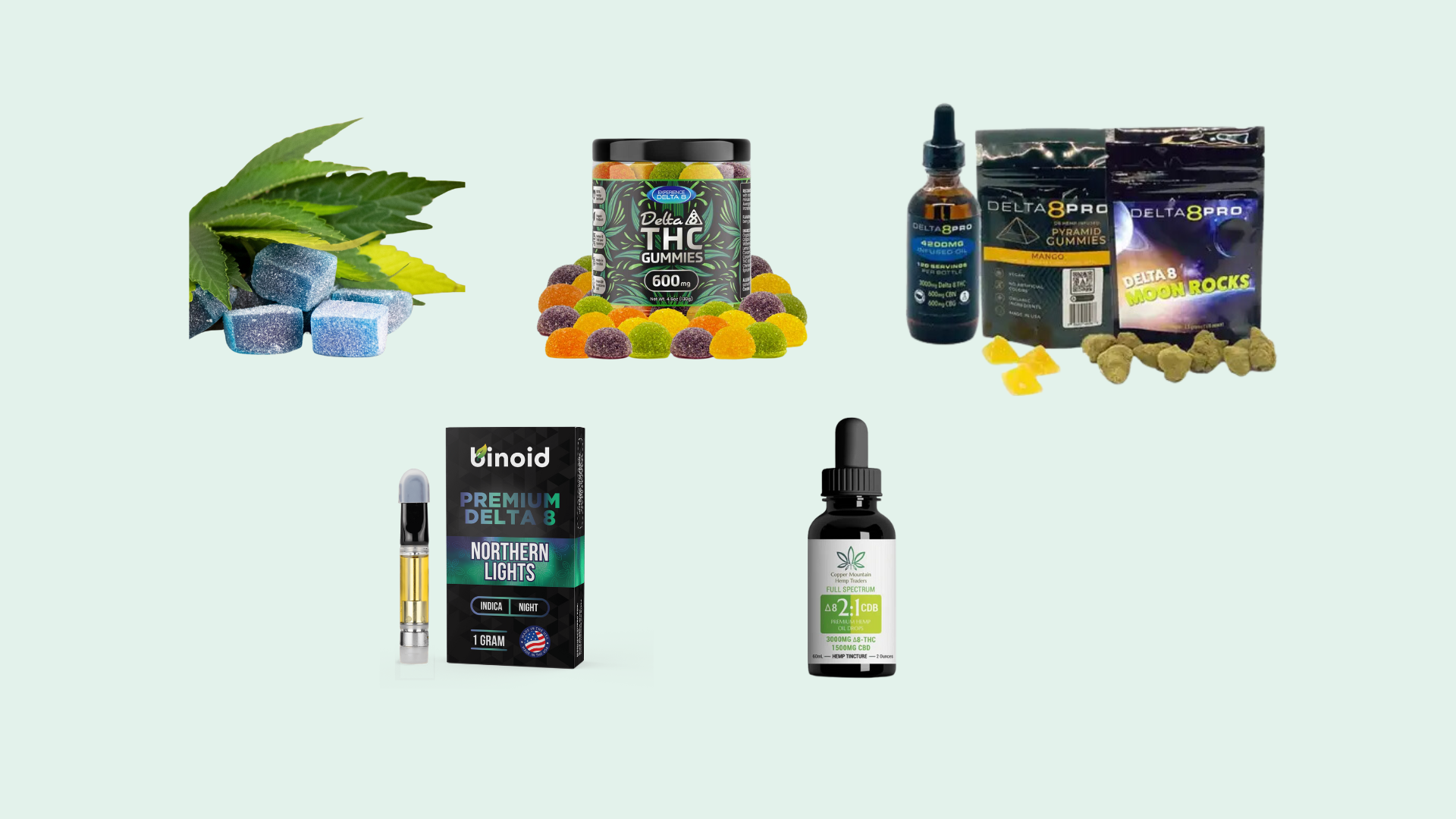What Is Delta-8 THC?
Delta-8 THC is a naturally occurring cannabinoid found in trace amounts within the Cannabis sativa plant, which includes both hemp and marijuana. While it shares a similar chemical structure to the more well-known delta-9 THC, the primary psychoactive compound in marijuana, delta-8 THC exhibits some distinct differences in its effects and potency.
Chemically, the distinction lies in the location of a double bond within the molecular structure. Delta-9 THC has a double bond on the ninth carbon chain, while delta-8 THC has a double bond on the eighth carbon chain. This subtle variation results in a milder psychoactive experience, often described as a “lighter” or “smoother” high compared to traditional marijuana.
The popularity of delta-8 THC can be attributed to its perceived advantages over delta-9 THC. Many users report experiencing a more relaxed and clear-headed high, with reduced incidences of paranoia, anxiety, and drowsiness that are sometimes associated with delta-9 THC. Additionally, delta-8 THC is often marketed as a legal alternative, as it can be derived from hemp, which was federally legalized in the United States under the 2018 Farm Bill.
What Are the Side Effects of Delta-8?
While delta-8 THC may offer a more moderate experience compared to its delta-9 counterpart, it is not without its own set of potential side effects. Users have reported a range of physiological and psychological reactions, including:
- Confusion
- Anxiety
- Drowsiness
- Dizziness
- Slow or fast heart rate
- Numbness
- Hallucinations or psychosis
- Vomiting
- Shaking or tremors
- Loss of consciousness
It is important to note that the long-term effects of delta-8 THC are not yet fully understood, as research in this area is still limited. The unregulated nature of the delta-8 market also raises concerns about potentially harmful additives or contaminants in the products, which could exacerbate the risk of adverse reactions.
What Is Delta-8 THC Addiction?
The addictive potential of delta-8 THC is a subject of ongoing debate and research. While some studies suggest that delta-8 may have a lower risk of addiction compared to delta-9 THC, the possibility of developing a dependence on this substance cannot be entirely ruled out.
Like other cannabinoids, delta-8 THC interacts with the endocannabinoid system, which plays a crucial role in the brain’s reward pathways. This interaction can potentially lead to addictive behaviors, particularly in individuals predisposed to substance abuse.
Recognizing the signs of delta-8 THC addiction is crucial for seeking timely intervention and treatment. Indicators of addiction may include:
- Increased tolerance, requiring higher doses to achieve the desired effects
- Withdrawal symptoms, such as irritability, insomnia, or cravings, when attempting to quit or reduce usage
- Neglecting important responsibilities in favor of delta-8 THC use
- Inability to control or limit delta-8 THC consumption
- Continued use despite negative consequences, such as legal or career-related issues
It is important to note that the legal status of delta-8 THC is still in flux, with some states banning or restricting its sale and use. Individuals using delta-8 THC may face legal repercussions, even in states where it is currently permitted.
What Is Comprehensive Delta-8 Addiction Treatment?
Addressing delta-8 THC addiction requires a comprehensive, evidence-based approach that addresses the unique challenges and needs of individuals struggling with this substance. Effective treatment typically involves a combination of the following elements.
Medical Detoxification
The first step in the recovery process often involves medically supervised detoxification, where individuals are monitored and provided with appropriate medications to manage withdrawal symptoms and ensure a safe transition to sobriety.
Behavioral Therapy
Cognitive behavioral therapy (CBT) and other evidence-based psychotherapeutic interventions can help individuals develop coping mechanisms, identify and address underlying triggers, and learn healthy strategies for managing cravings and preventing relapse.
Medication-Assisted Treatment (MAT)
In some cases, healthcare professionals may prescribe medications, such as cannabinoid receptor agonists or antagonists, to help alleviate withdrawal symptoms and reduce cravings, facilitating the recovery process.
Holistic Approaches
Incorporating holistic practices, such as mindfulness, meditation, and exercise, can complement traditional treatment methods by addressing the individual’s overall well-being and promoting long-term recovery.
Aftercare and Support Services
Ongoing support, including individual or group counseling, support groups, sober living arrangements, and access to community-based resources, can help individuals maintain their recovery and prevent relapse in the long term.
It is crucial to seek treatment from licensed healthcare providers and addiction specialists who are well-versed in the unique challenges posed by delta-8 THC addiction. By addressing the physical, psychological, and social aspects of addiction, comprehensive treatment programs can empower individuals to achieve lasting recovery and reclaim their overall well-being.

